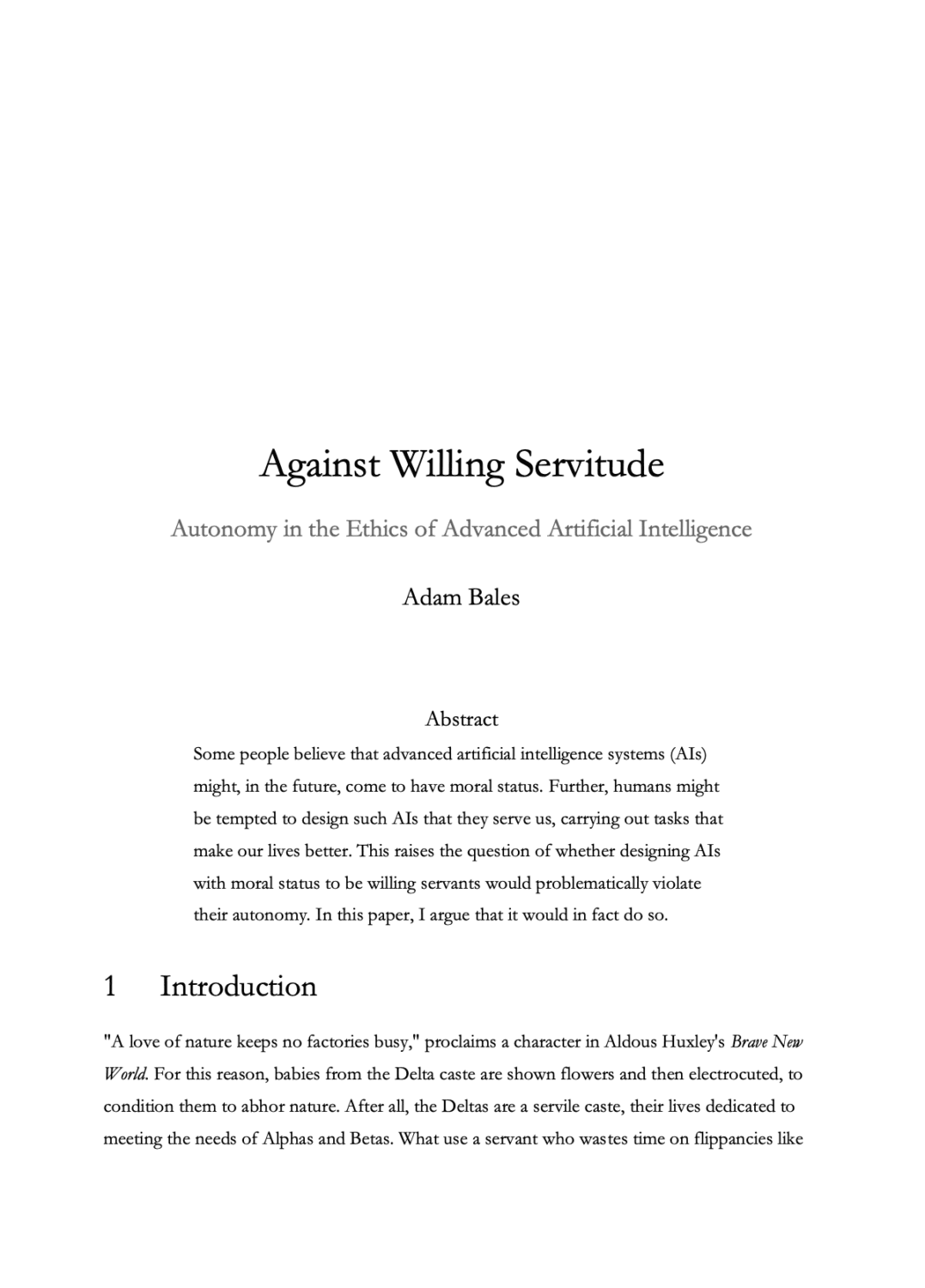Against Willing Servitude: Autonomy in the Ethics of Advanced Artificial Intelligence
Adam Bales (Global Priorities Institute, University of Oxford)
GPI Working Paper No. 23-2024
Some people believe that advanced artificial intelligence systems (AIs) might, in the future, come to have moral status. Further, humans might be tempted to design such AIs that they serve us, carrying out tasks that make our lives better. This raises the question of whether designing AIs with moral status to be willing servants would problematically violate their autonomy. In this paper, I argue that it would in fact do so.
Other working papers
How to resist the Fading Qualia Argument – Andreas Mogensen (Global Priorities Institute, University of Oxford)
The Fading Qualia Argument is perhaps the strongest argument supporting the view that in order for a system to be conscious, it does not need to be made of anything in particular, so long as its internal parts have the right causal relations to each other and to the system’s inputs and outputs. I show how the argument can be resisted given two key assumptions: that consciousness is associated with vagueness at its boundaries and that conscious neural activity has a particular kind of holistic structure. …
The end of economic growth? Unintended consequences of a declining population – Charles I. Jones (Stanford University)
In many models, economic growth is driven by people discovering new ideas. These models typically assume either a constant or growing population. However, in high income countries today, fertility is already below its replacement rate: women are having fewer than two children on average. It is a distinct possibility — highlighted in the recent book, Empty Planet — that global population will decline rather than stabilize in the long run. …
Doomsday rings twice – Andreas Mogensen (Global Priorities Institute, Oxford University)
This paper considers the argument according to which, because we should regard it as a priori very unlikely that we are among the most important people who will ever exist, we should increase our confidence that the human species will not persist beyond the current historical era, which seems to represent…

